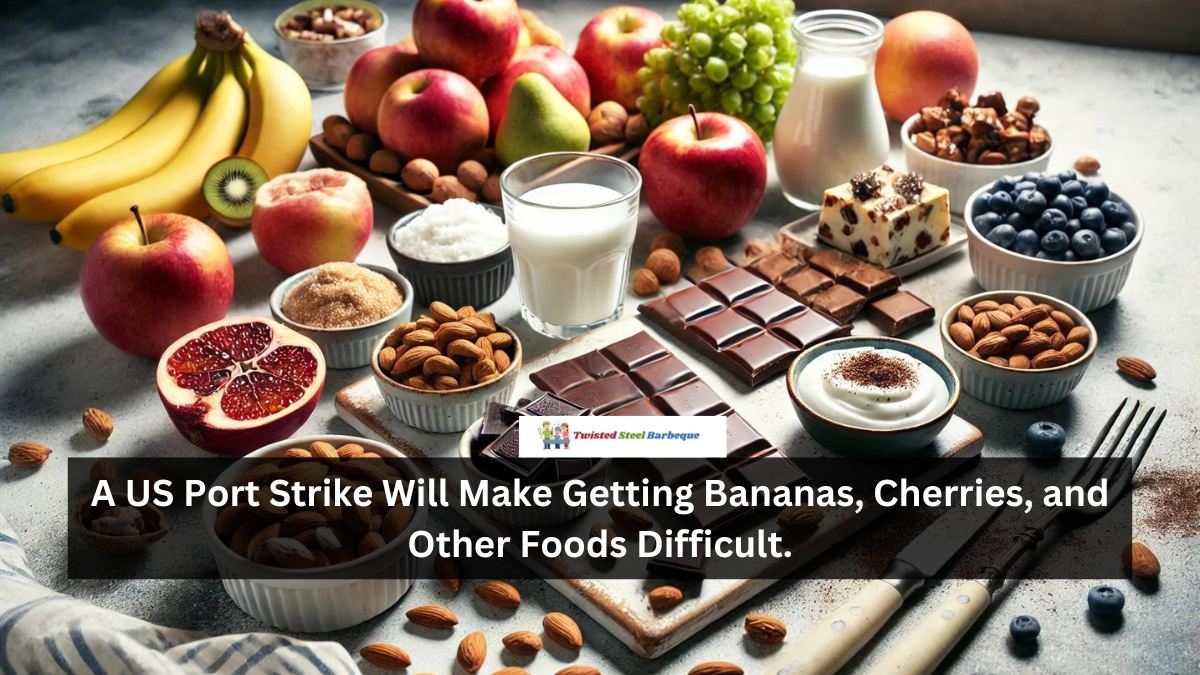A potential strike by dockworkers at critical ports along the East and Gulf Coasts of the United States is raising alarms about the significant impact it could have on the food supply and broader economy.
With negotiations between the International Longshoremen’s Association (ILA) and the United States Maritime Alliance (USMX) stalled a strike could begin within hours, affecting everything from fresh produce to clothing and household goods.
Current Situation and Implications
Reports from Reuters indicate that the ILA, representing about 45,000 dockworkers, has hit an impasse with USMX over pay and automation issues. The current contract is set to expire at midnight, and if a strike occurs, it would mark the first coast-wide work stoppage since 1977.
Analysts estimate that such a strike could cost the U.S. economy between $2 billion and $5 billion per day, depending on its duration and severity.
The repercussions of a strike would be felt across the country. According to Reuters, 36 major ports are involved, which handle a wide range of imports, including bananas, cherries, sugar, and raw cocoa.
Notably, the Port of Wilmington in Delaware is recognized as the leading banana port in the nation, processing around 1.2 million metric tons of bananas annually—accounting for about 25% of the U.S. banana supply. A disruption at these ports could lead to significant delays and higher prices for everyday goods.
Food Supply Chain at Risk
A strike would likely create a backlog of cargo at the affected ports, even if negotiations are quickly resolved. Retailers may be forced to raise prices as supply chains are squeezed, leading to a ripple effect that could impact food availability nationwide.
Fresh produce like cherries, as well as essential imports like wine and beer, could become scarce.
Union Demands and Employer Responses
While the ILA has not publicly detailed its demands, reports suggest it is seeking significant wage increases—up to 77% over the six-year contract period.
This would raise the hourly pay for top earners from $39 to $69. Union leaders, including ILA International President Harold Daggett, have expressed frustration over what they perceive as “insulting” offers from the USMX.
Daggett stated, “My ILA members are not going to accept these insulting offers that are a joke considering the work my ILA longshore workers perform and the billion-dollar profits the companies make off the backs of their labor.” He emphasized that the workers deserve fair compensation for their crucial role in maintaining American commerce.
Conversely, USMX has accused the union of refusing to negotiate in good faith. Reports indicate that the last in-person meeting between the two groups was back in June. USMX claims it has offered wage increases of around 40% over the contract period, but talks have yet to stall further progress.
Government Involvement and Possible Outcomes
President Joe Biden has the authority to intervene under the 1947 Taft-Hartley Act, allowing an 80-day cooling-off period to avoid strikes.
However, he has publicly stated that he will not intervene, citing the importance of collective bargaining and the need for both parties to come to the table.
Looking Forward
The looming possibility of a port strike highlights the fragility of the U.S. supply chain, particularly in the food sector. As negotiations continue, dockworkers and employers face pressure to reach a resolution that addresses both parties’ needs and concerns.
While the outcome remains uncertain, one thing is clear: a strike would have significant consequences for consumers and the economy as a whole. With the potential for increased prices and limited availability of essential goods, the urgency for a resolution has never been greater.
Conclusion
As the clock ticks down on contract negotiations, the stakes are high for dockworkers, employers, and consumers. The possibility of a strike that could halt operations at significant ports raises essential questions about fair wages and working conditions, as well as the resilience of the U.S. food supply chain.
In these critical moments, open communication and a willingness to negotiate on both sides will be essential to avoid a scenario that could disrupt commerce and negatively impact families nationwide. The situation’s urgency reminds us of our economy’s interconnectedness and the vital roles played by those who keep it running smoothly.
READ MORE: McDonald’s Halloween Buckets Received Significant Reactions.

